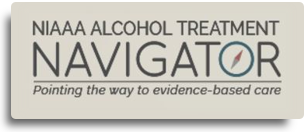When reviewing a patient’s medication list I noticed the Singulair (montelukast) prescription instructed her to take one tablet by mouth in the evening. I knew this was the proper way to take this medication because I had seen it come through the pharmacy many times, but I always wondered why it had to be taken in the evening.
In the Rumor vs. Truth section of the Pharmacists Letter evaluating when montelukast should be dosed, they concluded asthma symptoms tend to be worse during the night and early morning hours and that montelukast has a short half-life of about 4-7 hours with blood levels peaking 3-4 hours after a dose.4 For these reasons, they concluded that this is why healthcare providers and the prescribing information for montelukast recommends taking it at night in order to match peak drug levels with symptom onset.4 A comment was added by a pharmacist from Maryland that leukotriene synthesis occurs more at night than during the day. This would argue that evening dosing would have the most significant benefit on asthma symptoms both during sleep and the next day4. No clinical data could be found supporting this comment. Since the publication from the Pharmacist Letter, there has not been any additional studies or trials conducted to compare morning versus evening dosing of montelukast.
https://info.umkc.edu/pharmtofarm/clinical-question-when-to-take-singulair-montelukast-morning-or-evening/
With the question still slightly up in the air, I would still recommend the use of montelukast in the evening, despite there being no clinical evidence in comparing morning doses versus evening doses in adults with asthma. I say this because from clinical trials comparing placebo versus montelukast, montelukast was always given in the evening showing statistical significant results in reducing asthma symptoms in children and adults.2
https://messageboards.webmd.com/health-conditions/f/asthma/60727/why-should-i-take-singular-at-night-for-asthma
Anti-inflammatory properties of montelukast, a leukotriene receptor antagonist in patients with asthma and nasal polyposis.
Leukotrienes,
especially LTC4, are important inflammatory mediators in allergic and
nonallergic inflammation of the entire airways. Of particular interest
are numerous theories regarding the pathogenesis of aspirin intolerance
with subsequent hyperproduction of leukotrienes and inhibition of
cyclooxygenase.
OBJECTIVE:
To examine the influence of the cysteinyl-leukotriene receptor antagonist montelukast on clinical symptoms and inflammatory markers in nasal lavage fluid in patients with bronchial asthma and nasal polyps, and determine its dependency on aspirin sensitization.METHODS:
Twenty-four patients (7 women, 17 men; median age, 55.5 years) with nasal polyps and controlled asthma (n=12 with aspirin intolerance) were treated with 10 mg montelukast once daily for 6 weeks in a blinded, placebo-controlled fashion. The placebo phase was randomly assigned 4 weeks before (n=12) or after treatment (n=12). Symptom score, rhinoendoscopy, rhinomanometry, smears for eosinophils, and nasal lavages for the determination of different mediators were performed.RESULTS:
Compared to placebo, there were significant improvements in the nasal symptom score and airflow limitation as well as a reduction in the inflammatory mediators in nasal lavage fluid after treatment. Furthermore, reduced eosinophils in nasal smears and peripheral blood were observed 2 and 6 weeks after treatment.CONCLUSION:
Leukotriene 1 receptor blockade led to a significant decrease in eosinophil inflammation accompanied by a reduction in other mediators such as neurokinin A and substance P in the nasal lavage fluid of patients with nasal polyps and asthma, with or without aspirin intolerance.https://www.ncbi.nlm.nih.gov/pubmed/21370724

